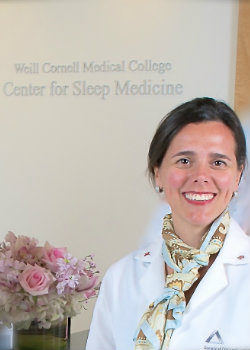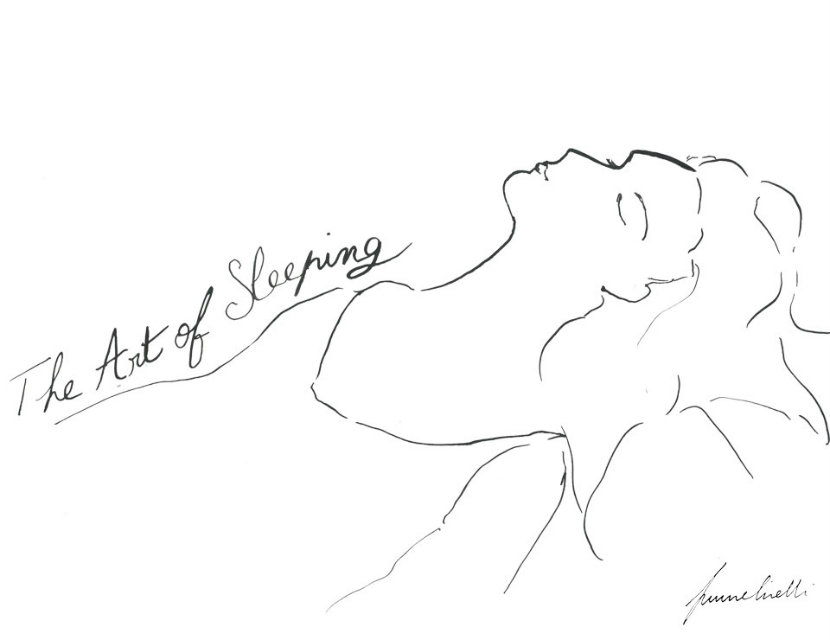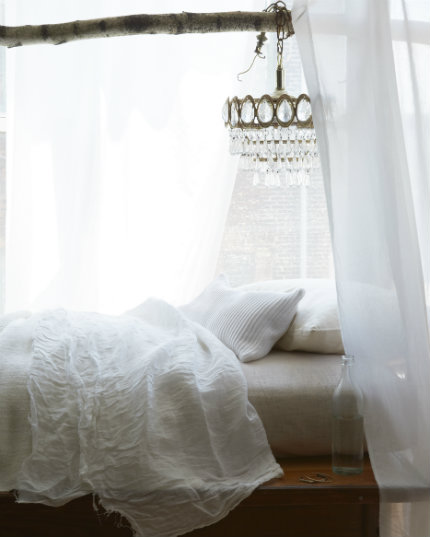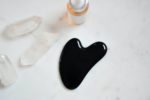Dysfunctional Sleep: a conversation with an expert
Our talk with Dr. Ana Krieger touched on many aspects of sleep dysfunctions, particularly relevant to women at all stages in life.
Dr. Ana Krieger is a nationally-recognized expert in sleep disorders. A board-certified specialist in Sleep Medicine and Medical Director at Weill Cornell Center for Sleep Medicine, she has, over the last 17 years, been actively involved in clinical care, training sleep specialists, and conducting collaborative multidisciplinary research projects in sleep medicine.
She is also an Associate Professor of Clinical Medicine in the Departments of Medicine, Neurology and Genetic Medicine, a faculty member at Weill Cornell Medical College, and Associate Attending at NY Presbyterian Hospital/Weill Cornell Medical Center and Rockefeller University Hospital.
We met at her offices at Weill Cornell Center for Sleep Medicine where her team of researchers conduct fascinating studies and treat patients with a variety of sleep disorders. Their state-of-the-art facility is equipped with specially-designed bedrooms that allow researchers to observe while patients stay the night.
Our talk touched on many aspects of sleep dysfunctions, particularly relevant to women at all stages in life.

BWB: How did you get interested in sleep disorders?
My first involvement with sleep research was in high school in the mid 1980’s. My interest in the field continued to grow through my medical training.
Several years later, during my residency in Chicago, I became involved in sleep medicine as a clinician treating patients with sleep-related problems. In the late 1990’s, after completing specialty training in three main disciplines: Internal Medicine, Critical Care Medicine and Pulmonary Medicine, I decided to dedicate myself fully to an academic career in Sleep Medicine.
BWB: Who did you study with specifically and/or who do you cite as an influence on your professional development or a mentor?
I was very lucky to have had several mentors helping my professional career development. I found my first mentors within my own family. My parents were role models of dedication and perseverance at work and instilled in me the importance of always maintaining an exceptional professional conduct, with a sense of responsibility and unwavering organizational skills.
Along with my siblings, who are all physicians, they provided me with a strong foundation to build my own career and choose a specialty that fulfilled me personally and professionally.
Throughout my professional training, I’ve had many outstanding mentors that helped guide my career development, from my pre-medical school years to nowadays, some through formal and structured mentoring programs and many others through informal mentorship opportunities. There are certainly too many to name, and I am very thankful to each one of them for being part of my life.
One of my first mentors from medical school continues to be a source of wisdom and guidance, still mentoring me, even after 25 years.
The main approach I use is to diligently work with patients to identify the potential underlying issues leading to their symptoms and addressing them in an orderly fashion aiming to improve their overall health and well being, beyond the specific sleep complaint.
BWB: What is the most common complaint that you encounter from patients?
The most common complaint presented by patients is the sensation of feeling tired.
The fact that is a non-specific complaint, shared by several different medical and behavioral conditions, makes my work very exciting. The main approach I use is to diligently work with patients to identify the potential underlying issues leading to their symptoms and addressing them in an orderly fashion aiming to improve their overall health and well being, beyond the specific sleep complaint.
Adults under age 65 should avoid sleeping less than 6 hours or more than 10 hours per day. For adults over age 65, the recommended sleep duration lies between 5 and 9 hours a day.
BWB: Can you explain the differences in needs for sleep and normal sleep patterns and how they vary by age groups for women?
According to the latest medical research, during adulthood there are actually no major differences in physiological sleep needs until age 65 and beyond. The National Sleep Foundation recently released a consensus statement on the recommended sleep duration for the population based on scientific evidence, and once again highlighted the fact that actual sleep need is very individual. Based on this evidence, adults under age 65 should avoid sleeping less than 6 hours or more than 10 hours per day. For adults over age 65, the recommended sleep duration lies between 5 and 9 hours a day.
Another important consideration is the variability of sleep duration that an individual may be subjected to during their lifetime. Several factors modulate our sleep needs, either acute- or chronically, including physical activity levels, overall health status, underlying medical or psychiatric problems, among others.
We encourage women that have a new onset of snoring after menopause to discuss that with their doctors and determine if a sleep evaluation is needed.
BWB: What are the most common sleep disorders for women in their 20s, 40s, & 60s – and how are they treated?
How common would you say they are? How do they differ from men’s chief complaints?
The most common sleep disorder seen in women is insomnia. This is quite prevalent in adult women, more so than in men. The most effective treatment approach is one targeting the evaluation and management of factors leading to inadequate sleep at night, which often pertain to behavioral adaptations to the demands for time that women face, juggling many different aspects of life.
In some cases, underlying sleep disorders such as restless leg syndrome, periodic limb movements in sleep or sleep apnea are uncovered during these evaluations.
Despite being more frequently present in men, after menopause, some women develop sleep apnea. Therefore, we encourage women that have a new onset of snoring after menopause to discuss that with their doctors and determine if a sleep evaluation is needed.
Restless leg syndrome is particularly common among pregnant women.
BWB: Do women’s needs for sleep and disturbances in sleep pattern change during and after menopause? How so?
During and pre-menopause, there are major hormonal changes that may affect some women more than others. There are also major changes in the body’s ability to regulate temperature. Both can result in sleep disturbances.
BWB: Are there any dangers in taking prescription or over-the-counter sleeping pills long-term?
Sleeping aids, either prescription medications or over-the-counter, should always be discussed with a doctor. These compounds affect sleep by influencing different chemical processes; therefore there are potential issues for chemical dependency and side effects that need to be considered on an individual basis.
Very importantly, these compounds should not be used in isolation, but as part of a comprehensive plan to improve sleep, including non-pharmacological approaches.
I often use every opportunity I can to educate others on the importance of sleep, from the basics of keeping a proper schedule and creating a bedtime ritual to using relaxation strategies to facilitate sleep and seeking help if a sleep problem is suspected.
BWB: You’ve been involved in a lot of efforts to raise awareness about the importance of sleep and sleep disorders. How successful have they been?
It is quite impressive to see the improvement in sleep awareness in the population over the past few years.
More than ever, the media has been interested in discussing issues related to sleep, which are so prevalent in our society.
This also comes at a great time when knowledge in the field of sleep medicine continues to expand. It is usually very rewarding working with the media, with a downstream effect that is often surprising. Patients are becoming well-versed in sleep problems and strategies to improve their sleep.
I often use every opportunity I can to educate others on the importance of sleep, from the basics of keeping a proper schedule and creating a bedtime ritual to using relaxation strategies to facilitate sleep and seeking help if a sleep problem is suspected.
It is known that increased exposure to light from electronic devices prior to bedtime is associated with sleep disruption. Establishing a proper bedtime routine is critical for the well being of students.
BWB: Discuss an interesting research project related to sleep you’ve been involved with recently.
Over the years, I have been involved with several research projects. One of the most rewarding projects was generated through mentoring a high school student two years ago. It was an excellent project looking at sleep in adolescents, who are quite sleep-deprived nowadays given their busy schedule after school, loads of homework and all the electronic activities at night, often related to games and/or social networking.
It is known that increased exposure to light from electronic devices prior to bedtime is associated with sleep disruption.
Establishing a proper bedtime routine is critical for the well being of students.
One other fascinating area I’m exploring recently with a colleague of mine, Dr. Yang, is the effect of Tai Chi on sleep.
BWB: What is the best way for women to avoid becoming victims of a sleep disorder? What lifestyle changes do you recommend?
Awareness is the key for understanding and fixing sleep problems. Women often feel trapped by so many conflicting needs in their lives and start stealing time from sleep, either by effectively scheduling tasks for the night time (often after the kids are asleep) or by using the sleep time to think, worry or plan the days and weeks ahead.
This phenomenon is often considered unavoidable by many.
However, when taking time to analyze their detailed routine, we often identify opportunities for improving sleep patterns and prevent activities that impair sleep quality at night, for example, by reallocating the time to worry from the bedtime to the daytime. When we sleep better, we perform better and with improved performance, it is easier to steal a few minutes from our daytime schedule to deal with issues that would otherwise fill our minds at bedtime and keep us from sleeping.
It is also important to avoid situations and activities at night that are counter-productive for sleep, including late meals, exercising too close to bedtime and keeping the bedroom too warm.
Also, drinking wine right before sleeping is not recommended; alcohol leads to sleep fragmentation and sometimes sleep apnea. The net effect is not very positive.
BWB: What organizations are medical authorities in the field?
The recognized authority in medical treatment of sleep disorders is the American Academy of Sleep Medicine.
The National Sleep Foundation is also important, as they conduct many research studies.
In treating sleep disorders, I believe in a holistic approach, as well as an individualized treatment plan.
BWB: Some thoughts about your philosophy of treatment?
We can’t really live without sleep. Animals deprived of sleep die. Yet sadly according to the National Sleep Foundation over 30% of the population rate the quality of their sleep fair or poor.
In treating sleep disorders, I believe in a holistic approach, as well as an individualized treatment plan.
Here at Weill Cornell, I work with an interdisciplinary team that includes neurologists, psychiatrists, and nurse practitioners.
Aside from being the specialist in sleep disorders, I also see myself as a life coach.
I also personally believe that every time we improve well being, we improve sleep. Yoga and meditation, for example, can be fabulous in improving sleep quality as they reduce anxiety and promote feelings of well being.







